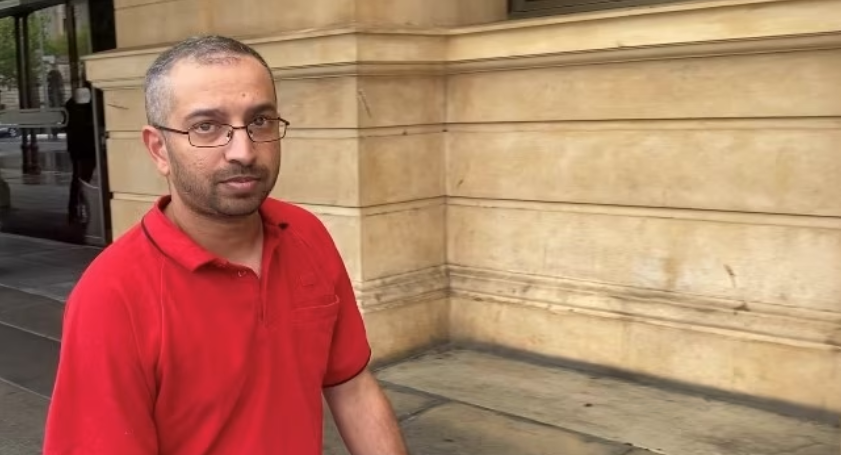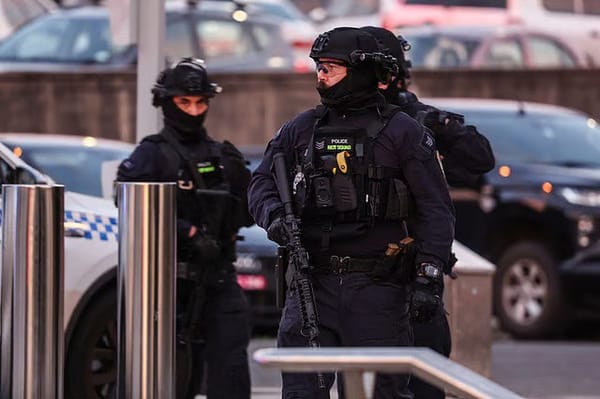Shivan Suresh Agravat

In the throes of March 2020, amidst the ominous onset of the COVID-19 pandemic, Shivan Suresh Agravat orchestrated a malicious scheme targeting a sex worker.
Prior to the commission of this abhorrent act, an online purchase was made—a gel blaster pistol mirroring the appearance of a genuine firearm.
Close to the intended time of the crime, a shoulder holster for the pistol and handcuffs were procured from a Spotlight store. The perpetrator furthered their preparation by scouring the internet for Australian Federal Police identification images. Subsequently, a counterfeit Australian Federal Police identification badge was fabricated and printed.
Identifying vulnerable sex workers in the city based on their immigration status and line of work, the perpetrator schemed to deceive them, fully aware of their possession of substantial cash earnings. Posing as an AFP officer on the night of 27th March 2020, the perpetrator lured a sex worker to a city hotel under the guise of a customer. Upon meeting, the victim was falsely informed of illegal activities, presented with a counterfeit AFP badge, and shown the firearm and handcuffs in the perpetrator's possession.
Under the pretence of inspecting immigration papers, the perpetrator accompanied the victim into the hotel foyer. Their progress was halted by the duty manager due to prevailing COVID restrictions. Displaying the fake AFP identification, the perpetrator convinced the manager of tracking the woman and the necessity to check her documents in her room.
Believing the ruse, the victim led the perpetrator to her shared room, occupied by her fellow sex worker—a duo of non-citizen women in their early twenties.
Inside the room, the perpetrator unveiled the fake police identification and revealed the gel blaster pistol and handcuffs concealed under their attire. The victims, misled into believing the authenticity of the perpetrator's identity, surrendered their mobile phones and passports. Threatened with arrest, they were coerced into surrendering approximately $8,000 in cash earned from their work.
Following the monetary exchange, the situation escalated as the perpetrator imposed a further ultimatum: comply with sexual demands or face arrest and imprisonment. Succumbing to fear, one of the victims reluctantly acceded to the demand for sexual intercourse, while the other was instructed to remain in the bathroom.
Both victims were visibly distressed, tears betraying the turmoil of their coerced predicament. The coerced sexual activity, accompanied by the victim's tears, indicated an absence of genuine consent—a consequence of the threats levelled against them.
Though one victim engaged in the coerced sexual act, her compliance stemmed from the absence of a viable choice rather than voluntary consent. The perpetrator's manipulation deprived her of agency, presenting a grim ultimatum—comply or face dire consequences.
Post the sexual assault, the victims courageously reported the harrowing incident to the authorities, resulting in the swift identification and arrest of the perpetrator.
Throughout the subsequent legal proceedings, the perpetrator initially maintained a plea of not guilty, later altering their plea upon realising the futility of their defence. The gravity of the charges became evident during the trial, leaving no room for doubt regarding the culpability of the accused.
The delayed admission of guilt spared the victims from further distress during their testimonies. However, the timing of the plea change, chosen strategically to gauge the victims' willingness to testify, underscored the perpetrator's attempt to evade accountability.
The court, taking into account the mitigating and aggravating factors, delivered a sentence aligning with the severity of the offences committed. The perpetrator's history, mental health struggles, and traumatic experiences were weighed against the egregious nature of their crimes.
Aged 35, the perpetrator's journey from Kenya to Australia, their work history, and encounters with traumatic events in their homeland formed a backdrop to the present offences. Suffering from the repercussions of post-traumatic stress disorder, the accused held temporary residency in Australia, now facing deportation due to their reprehensible actions.
The sentencing, after due consideration of time spent in custody and on home detention bail, imposed a term of imprisonment—three years and six months for deception and seven years for rape, cumulatively resulting in a total of eight years and four months of incarceration.
A non-parole period of four years and six months was established, accounting for the protective and deterrent elements of the sentence. A slight reduction in the sentence compensated for the duration spent under home detention bail.
Acknowledging the time spent on remand, the sentence commencement date was set retrospectively. Despite circumstances and attempts at mitigation, the severity of the crimes warranted a stern and fitting punishment, ensuring justice for the victims and society at large.
Key details:
Shivan Suresh Agravat faces four rape charges and three deception charges.
Allegations involve his impersonation of police while committing sexual assault during hotel quarantine.
He's been granted home detention bail under strict conditions.
Shivan Suresh Agravat, aged 34, faces four counts of rape and three counts of deception related to incidents that allegedly occurred in an Adelaide city hotel in March 2020.
He has pleaded not guilty and is scheduled for trial in October.
Allegations suggest that Mr. Agravat, while armed with a fake gun, pretended to be a police officer and sexually assaulted two women during their 14-day hotel quarantine.
Recently, he was granted home detention bail to reside in Salisbury, subject to stringent conditions.
As part of the conditions, he must surrender his passport, be under electronic surveillance, and refrain from contacting five individuals, including the alleged victims.
District Court Judge Paul Muscat acknowledged the gravity of the alleged offences but noted that Mr. Agravat had been in custody since March 2020.
The judge emphasised the complexity of the case, which had caused several trial postponements.



